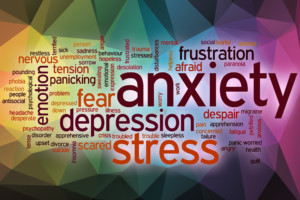After a severe work injury that results in an amputation, injured workers are left to pick up the pieces. There is a lot of information out there on a person’s physical recovery but not a lot on dealing with the mental and emotional toll that an amputation can take a patient.
I found some great insight from the website www.amputee-coalition.org for injured workers to review and help gauge where they are in the mental recovery process. These topics would be ideal to discuss with your doctor, a family member, or a counselor.

Signs of Recovery from an Amputation:
- A sense of balance in emotions and relationships
- Awareness of abilities and limitations
- Positive self-concept and a sense of accomplishment
- Ability to get around in the environment
- Participation in social, vocational, and/or recreational activities
- Setting priorities
- Recovery is a tall order for anyone, with or without limb loss!
- Whatever recovery means to you
Take time to learn what makes everyone’s recovery different.
- Determine your personal goals.
- Ask for help when you need it.
- There are many issues that affect recovery from amputation.
Four Categories of Amputation Recovery Issues:
1. Issues related to the amputation
- Whether the amputation was sudden or due to a chronic, debilitating illness
- The level of the amputation
- Whether the amputation surgery was successful in stabilizing the condition that caused it
- How the day-to-day ability to function will be affected
2. Individual characteristics
- Age or health status. Obviously, the older you are, the greater the chance that you have other conditions (known as comorbid conditions) that could impact your recovery.
- Current stage of life
- Financial status
- Ethnic background
3. Personality traits
- Coping strategies used before the surgery
- Sense of control over the situation
- Attitudes toward health and sickness
- Self-concept and body image
- Experience coping with other similar losses
4. Characteristics of the physical and social environment
- Availability of a support system, such as family, friends or a support group
- Availability of appropriate medical care
- Accessibility of services in the community
- Living arrangements
- How other people view limb loss
At the Injured Workers Law Firm, we want to make sure you receive the benefits you deserve, contact us!
About the Author: Michele Lewane
The Injured Workers Law Firm is a Richmond, Virginia based firm solely focused on serving clients with workers' compensation claims in Virginia. If you have questions about your benefits or if you would like more information on the Virginia workers’ compensation system, order our book, “The Ultimate Guide to Workers’ Compensation in Virginia” , or call our office today (804) 755-7755.


